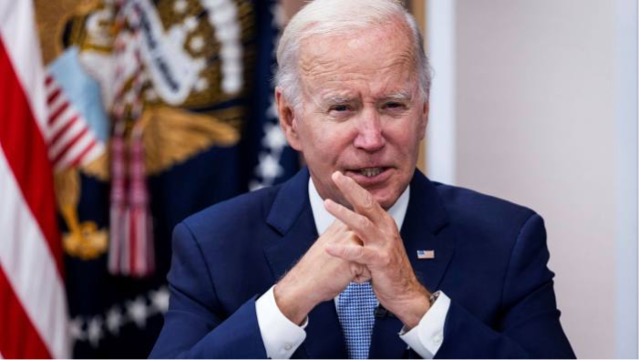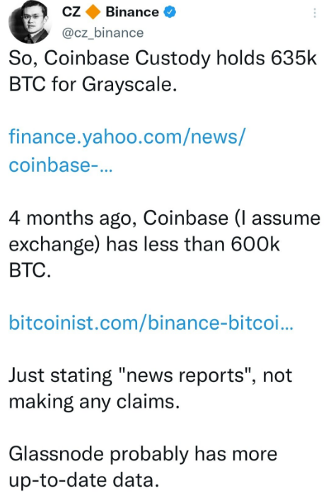As the G20 agrees a ‘critical’ need for crypto regulation, the ongoing implosion could accelerate before regulators can gain a foothold.

The recent G20 gathering in Indonesia saw most powerful global leaders call for a ‘critical’ international set of rules to help govern the crypto space. Citing the potential risks to global ‘financial stability’ given the collapse of Celsius, Voyager, FTX, and now potentially Genesis, this could be viewed as another welcome step towards crypto certainty.
In a note posted to the White House website, the G20 argued that ‘it is critical to build public awareness of risks, to strengthen regulatory outcomes and to support a level playing field, while harnessing the benefits of innovation.’
And just last month, the global financial standard-setter Financial Stability Board proposed new rules that would subject crypto companies and markets to the same tough regulations that govern traditional finance.
Now, US Treasury Secretary Janet Yellen has argued that the fall of FTX ‘demonstrates the need for more effective oversight of cryptocurrency markets,’ concurring that the same protections offered in traditional markets should apply to crypto assets. This has been a recurring theme in the US, with similar comments made by both the President and SEC Chair Gary Gensler.
On the other side of the Atlantic, Bank of England Deputy Governor Jon Cunliffe believes that ‘behind these protocols typically sit firms and stakeholders who derive revenue from their operations. Moreover it is often unclear who, in practice, controls the governance of the protocols.’
He compares crypto assets to ‘unsafe aeroplanes,’ and believes that crypto ‘will only be developed and adopted at scale within a framework that manages risks to existing standards’ without facing existential crisis. The Bank will be releasing a consultative report considering the creation of a Pound Sterling CBDC in December, buoyed by long-time CBDC-supporter PM Sunak.
The UK is also moving forward with the Financial Services and Markets Bill which will bring into law a ‘range of measures to maintain and enhance the UK’s position as a global leader in financial services,’ with hopes of creating a global crypto hub. Chair of the Crypto and Digital Assets All-Party Parliamentary Group Lisa Cameron notes that creating a legal definition of crypto as ‘digital settlement assets’ could also help create regulatory certainty.
FTX: Tether contagion
As the FTX contagion spreads, it’s notable that Bitcoin has fallen below $16,000 and Ethereum below $1,100. With investor confidence shaken, there are two potential immediate scenarios that could see both fall even further to multi-year lows.
The first is the potential for Tether to collapse. US Dollar-linked stablecoins had already come under fire from the SEC, and the altcoin is trading far below its dollar-peg. Tether’s trading volume officially came in at $13.76 trillion yesterday, 200x its market cap, and circa 20% of global annual GDP. This ‘charting error’ could be covering something more serious.

But the second potential disaster scenario could stop the industry in its tracks: the potential for Coinbase to collapse. To start with, the US’s largest exchange has confirmed it is holding 635,000 Bitcoin and circa 15 million Ethereum on behalf of Grayscale Trust, which is refusing to show proof of reserves.
Grayscale argues that ‘Coinbase frequently performs on-chain validation,’ but will not release a cryptographic proof-of-reserve due to ‘complex security arrangements that have kept our investors’ assets safe for years.’ The assets are set up as separate legal entities and in theory should ‘prohibit the digital assets underlying the products from being lent, borrowed, or otherwise encumbered.’
Of course, recent history shows hot wallets cannot always be trusted. Peter Schiff thinks that based on GBTC’s 43% discount to NAV, Bitcoin could already be worth less than $10,000 in practice. And if Coinbase were found to be lying about its holdings on behalf of Grayscale, then the crypto winter could rapidly become the crypto apocalypse. For context, Coinbase claims to hold 2 million Bitcoin overall, more than 20% of the global supply.
But there’s also a wider problem. Coinbase shares are down 83% year-to-date, and 17% are being shorted at present. Its cost base is more than double its revenue. And it’s created $1.1 billion in new shares to entice staff to stay on over the past nine months alone.
Coinbase bonds are also trading at a gigantic 50% discount relative to implied value, while also yielding a sky-high 16%. This indicates that investors believe it may struggle to meet its interest payment commitments. The problem is that Coinbase relies on high trading volume to generate the commission required to cover its outsized costs. But activity is collapsing, accounts have lower amounts of crypto in them, and customers are also trading less often.
Personnel signs are also worrying. As far back as May, CFO Alesia Haas warned there was a ‘small risk of bankruptcy’ as a result of SEC regulation. But Coinbase had already been SEC-regulated at this point for years.
Then there’s this now deleted Tweet by Binance CEO Changpeng Zhao, who publicly questioned its reserves.

Of course, none of this evidence means Coinbase is genuinely on the verge of bankruptcy. But it would take a truly high-risk trader to consider going long.
This article has been prepared for information purposes only by Charles Archer. It does not constitute advice, and no party accepts any liability for either accuracy or for investing decisions made using the information provided.
Further, it is not intended for distribution to, or use by, any person in any country or jurisdiction where such distribution or use would be contrary to local law or regulation.
